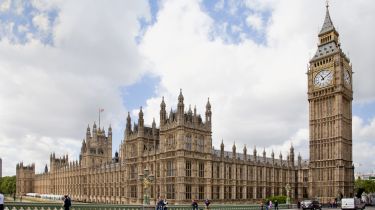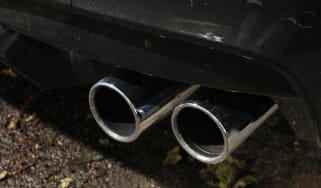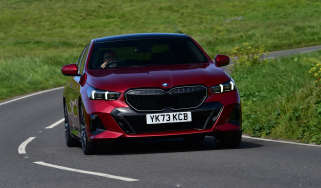Fuel duty frozen, but new car buyers hit by VED hikes
Labour’s first budget spares drivers at the pumps, while industry raises investment fears

Drivers breathed a sigh of relief as the freeze on fuel duty introduced in 2011 was retained, along with the previous government’s 5p ‘cost of living’ reduction, in Labour’s first budget delivered on October 30 by Chancellor Rachel Reeves.
Against a challenging economic background Reeves introduced a package of measures she described as ”restoring economic stability and turning the page on 14 years”. But while drivers escaped the price hikes at the pumps that pundits were predicting, the car industry was less happy with a huge rise in Employer National Insurance Contributions - effectively a tax on jobs.
Welcoming the Chancellor’s commitment to a £2bn automotive transformation fund, Society of Motor Manufacturers and Traders chief executive Mike Hawes pointed out the strategy depends on the UK being globally competitive. “Additional National Insurance Contributions will put massive pressure on the automotive supply chain, which is predominantly SMEs (small and medium enterprises),” he said, adding: “The lack of substantive measures to support the new car market – in particular for electrified vehicles – is hugely disappointing. With the sector challenged to deliver the world’s most ambitious EV transition targets, achievement of those targets is in serious doubt. There must be an urgent review of the market and regulation, else the cost will soon be felt in reduced UK investment, economic growth and jobs.”
Overall, the Chancellor’s measures were designed to raise taxes by a huge £40 billion, and drivers didn’t get off scot free. Changes to Vehicle Excise Duty (road tax) saw the first year rate doubled for vehicles emitting over 75g/km of CO2, while electric cars will pay road tax for the first time from January, albeit at a reduced figure of £30. Company car tax rates for hybrids will also increase significantly from 2028.
Earlier this month Auto Express wrote to the Chancellor urging her not to tighten the screws on drivers, but instead to keep Labour’s promise to fix Britain’s broken roads. We also pointed out that drivers wouldn’t accept attempts to excuse hikes in fuel duty or VED by citing unpopular and unrealistic green targets, and urged her not to justify rises as levers to push drivers towards EVs that many can’t afford.
When we polled Auto Express readers about their expectations from the budget, an overwhelming majority - 72 per cent - wanted the Chancellor to address crumbling, pothole-infested roads, while 42 per cent wanted action on high fuel prices. The Chancellor told the House of Commons that retaining the 5p fuel duty cut would cost £3 billion in 2025, but she had nonetheless concluded that “increasing fuel duty next year would be the wrong choice for working people”.
Reeves announced a £500m boost for pothole spending in 2025, but there was no sign of Labour’s previously pledged ‘long-term funding plan’ to repair the UK’s roads, or any measures to boost policing - high levels of car crime were third on the list of Auto Express readers’ pre-budget concerns.
Other transport-related measures in the budget included an extension of the bus fare price cap in England, albeit with a 50 per cent price hike to £3 for a single journey. £650 million was also allocated to support public transport connections in towns, villages and rural areas, plus £100m earmarked for “cycling and walking infrastructure” projects.
Want the latest car news in your inbox? Sign up to the free Auto Express email newsletter...








